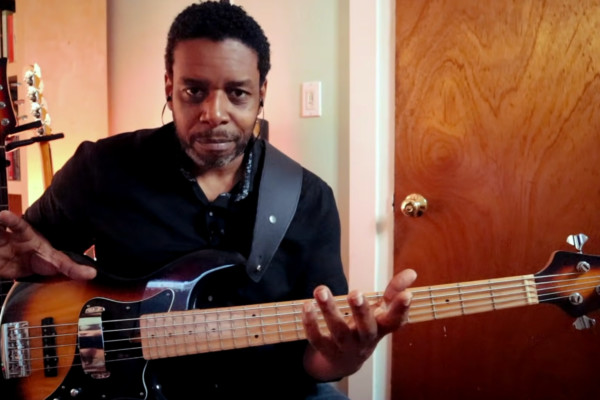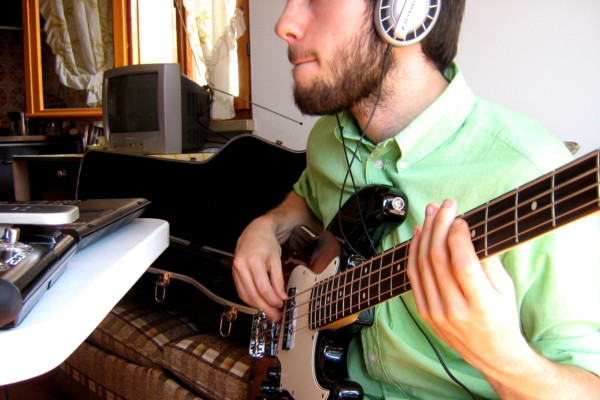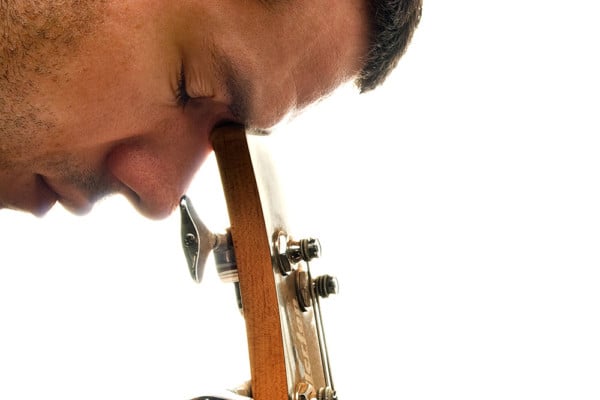Making Resolutions: A Guide for Bass Players
Although it seems most people have given up on the practice of making New Year’s resolutions, some musicians still make music-related resolutions. The most popular ones seem to be along the lines of “practice more,” or worse, “become a better bass player.”
While the intent is laudable, it is unlikely that such “resolutions” will have a positive end result. They are too vague and not particularly inspiring. They fall into the same category as “exercise more often” and “eat better.” Such pledges generally last for up to six weeks, usually less. Gym memberships and attendance prove this. We soon fall back into our old habits. It only takes a few times of obtaining this result before we quit making resolutions altogether. It begins to seem pointless and self-deluding. Besides, breaking our promises to ourselves doesn’t feel good; it feels a bit like failure.
Nonetheless, I’ve made a few music-related resolutions for 2013. Yes, I still make resolutions. However, I do so strategically, and this allows me to be more successful in guiding my life than in my earlier years. Of course, we needn’t only create resolutions only on Jan. 1, but it’s as good a time as any to look at the direction of our lives and try and improve our lot. Only we can do so.
Below you will find a few guidelines that I use when making a resolution. Using them can help steer you toward success in the New Year.
Get Specific
An effective resolution has a measurable goal. If it is not measurable, then we are talking about a dream, not a goal. “Practicing more” is not explicitly measurable. It is a dream, and therefore not an effective resolution. We can turn our dreams into goals by asking a few questions.
For example:
- Practice more than what exactly? How many days a week will I practice?
- How long will I practice each day?
- What material will I practice during this time?
- What are the specific goals I am striving for in my practice sessions?
- For example: Is there a specific style of music you want to be comfortable with? A specific skill, etc.? Are there auditions coming up that you want to attempt? A performance of a certain work you want to give?
- How exactly will I go about achieving those goals in practice?
These are just a few questions to get you started, you should come up with your own questions and answers related to your desires and needs. Spend time clearly defining your goal and then restate your resolution.
An example of a clearly defined resolution that has been carved from the dream of “practice more” might be:
I will practice six days a week, for a minimum of two hours each day. During these two hours I will spend at least thirty minutes each day doing scale work and thirty minutes each day soloing over a jazz standard, introducing one new tune each week.
This is exceptionally definable. You will know each day if you are on the path or not. Your particular goal may be quite different than the one above, but it should be equally specific.
Be Intelligent
Sometimes when we are first starting to be specific about our goals we may find ourselves a bit unreasonable. While our resolution should be a challenge, it should be within of our current capabilities to achieve. For example, if we only been playing for a few years or have never had a steady practice regimen, it would be unreasonable to expect that we can learn a new Paganini caprice every two weeks.
While the previous example may be obviously unrealistic, others may not be so clear-cut. Once we go through a goal-setting process a few times we will have a better handle on exactly how quickly we can push ourselves. At first, you may indeed find that your expectations are unrealistically high. However, you may also find they are too low! It may be humbling or emboldening, but it will always be enlightening.
In short: Make your resolution a challenge, but an attainable one.
Get Emotional
A resolution is essentially a commitment to oneself. Intellectual reasons do not solidify a commitment in the long run. After all, as humans we can intellectualize and justify anything. Intellectual reasons for achieving a goal put us in the state of: “I should do this.” Soon enough we will come up with a reason why we shouldn’t. Emotional reasons, however, provide the drive needed to see things through. Emotions put us in the state of: “I must do this.”
Make no mistake, your resolution will, at times, be challenging to stick with. If you are aiming to practice 6 days a week (as above) you will find that some days you are seemingly too tired, or you can’t seem to find time alone, or there is some emergency, etc. If you expect to follow through on your resolution during such times you will need strong emotions tied to your success or failure. You need to believe that you must, rather than think that you should, follow through.
Find your emotional reasons by writing down two lists:
- What will I gain if I follow through on my resolution?
- What will I lose if I don’t?
Think ahead. Think five, 10, even 20 years out. What will happen in 20 years to my musical life if I don’t practice 6 days a week? What will happen in 20 years if I do? Find your emotional reasons.
Review Often
Read your specific, goal-oriented resolution, and your emotional reasons for making that resolution, each and every day. I suggest immediately upon awakening.
Doing so gives us several benefits:
- We can remember exactly what we are trying to achieve and why. Keeping it in the forefront of our mind is helpful to success and keeps us from falling into old habits.
- We can keep our emotions connected to this resolution strong each day. This will help us through the times when life presents a challenge, or when we are just feeling particularly lazy. It keeps things in the “must” category.
- We can evaluate and adjust our resolution as time goes on. Perhaps we were too ambitious? Perhaps we weren’t ambitious enough? Etc. Give yourself time before evaluating, however. If you are new to this type of goal setting, perhaps once a month. As you become more experienced, perhaps once every three to six months.
I will be making resolutions and following the above guidelines, and I hope you do as well.
A toast: To achieving our goals in the new year!
What are you focusing on musically this year? I’d love to hear about it, and your approach to getting results. Share your story in the comments.
Dr. Donovan Stokes is on the faculty of Shenandoah University-Conservatory. Visit him online at www.donovanstokes.com and check out the Bass Coalition at www.basscoalition.com.




I’ve just read the article and certainly haven’t had time to consider deeply any resolutions. But I know that since starting to play bass I’ve started on a long winding road. A lot can happen in the next few days, just imagine the months and years! But I’ve just been invited to join a ska band. I’ve got very little experience playing reggae and ska, my background is in jazz/swing and classical music so it will certainly be an interesting challenge for me. But I embrace all aspects of the instrument and see no reason why I can’t be better than anyone else. I dabble in tapping, various methods of slap, electric and acoustic instruments, double bass, fretless bass and of course, extended range instruments. I have 2 7 string fretless basses, a 5 string fretted, and a 4 string fretless. Tomorrow I’m heading out to try out some new amps/cabs, and then I’m saving again for another bass.
Sorry this has been such a long comment, but I couldn’t work out how to abbreviate it.
Basically, this article was an inspirational read and will hopefully help me achieve my own various goals.